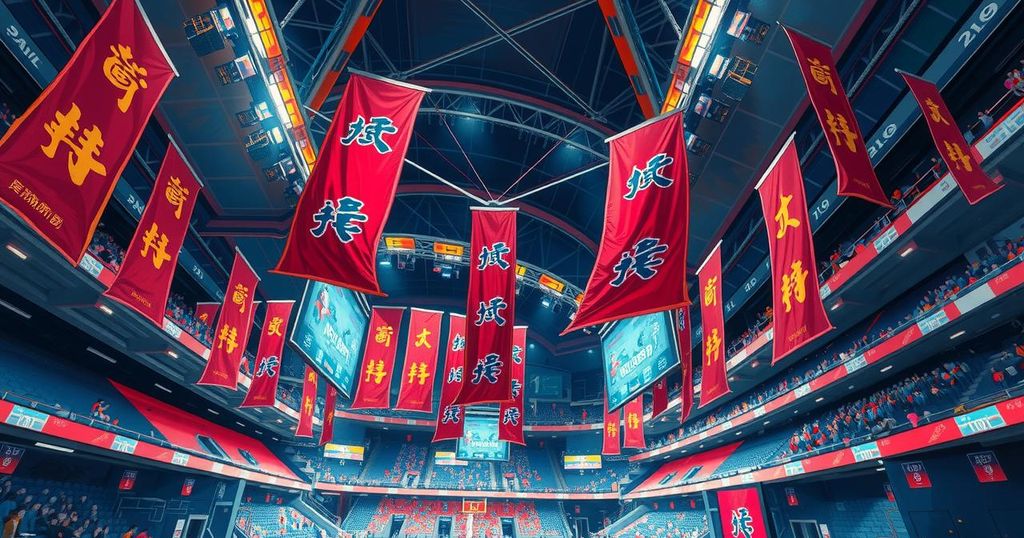IOC Presidential Election Approaches with Uncertainty Amidst Strong Contenders

The IOC presidential election is highly competitive with no clear frontrunner ahead of the vote scheduled for Thursday. Candidates, including David Lappartient and Juan Antonio Samaranch Jr., have expressed their commitment, while the election’s secret ballot system will determine the winner. The new president will tackle significant challenges such as financial sustainability and climate change.
The election for the 10th president of the International Olympic Committee (IOC) is entering its critical phase with no definitive frontrunner, as members prepare to cast their votes. Set in picturesque Costa Navarino, Greece, IOC members are gathered for the 144th Session, signaling the last assembly under the presidency of Thomas Bach. The current setting creates an atmosphere of anticipation, as candidates make their final appeals to members who recognize the weight of their decision for the Olympic Movement’s future.
Media reports suggest heightened speculation regarding the candidates; however, none are perceived to hold a clear advantage, denoting this as one of the most unpredictable IOC elections in recent history. IOC Executive Board member Li Lingwei expressed the competitive nature of the election: “This is an intense election, and everyone is carefully evaluating their choices. Each candidate has their own strength.”
David Lappartient, president of the International Cycling Union, articulated expectations for a prolonged race. “I think it’s moving fast, but I’m still in the race,” he remarked, likening the election dynamics to a cycling peloton. He affirmed his belief that it will require multiple voting rounds to declare a winner.
Juan Antonio Samaranch Jr., a notable candidate, emphasized the confidentiality of the ballot and the autonomy of IOC members. He articulated that external appearances, such as friendships and gestures, could mislead on actual voting intentions: “It’s very easy to mistake a smile for a vote, a friendship for a vote, a nice word for a vote.” Samaranch pledged his commitment to campaigning until the very last moment before the election.
With over 100 ballots anticipated, members will engage in a secret ballot. Should no candidate achieve an absolute majority in the initial round, the candidate with the least votes will be eliminated, prompting further rounds until a victor is determined. Sebastian Coe, president of World Athletics, chose to maintain silence ahead of the voting, stating briefly “I’m still here” as he exited.
Kirsty Coventry, the first African woman to contest the presidency, has been suggested as a preferred successor to Bach but remained coy, refraining from comments. Prince Feisal bin Hussein expressed his optimism, stating, “I’m in it to win it,” while acknowledging the unpredictability of the outcome. Other candidates, including Johan Eliasch and Morinari Watanabe, also opted for restraint, with Watanabe simply stating, “I am waiting,” while Eliasch noted, “We shall see tomorrow.”
The next IOC president will face formidable challenges such as political neutrality, financial sustainability, gender equity, and adapting to digital innovations, along with addressing climate change concerns particularly impacting future Winter Games. IOC member Martin Fourcade stressed the need for strong leadership, stating, “The new president must not only have leadership skills but also be able to balance different interests while promoting fairness and sustainability in the Olympic Games.”
In the last hours leading to the election, deliberations continue discreetly as candidates strive to convince undecided voters. Each member must carefully consider their choices. “No matter who wins, this election will be a historic milestone for the Olympic movement,” concluded Li Lingwei.
The impending IOC presidential election underscores significant uncertainty and competitiveness among candidates, with no clear frontrunner. As the voting approaches, candidates are actively engaging with members, highlighting the importance of their votes in shaping the future of the Olympic Movement. The incoming president will face critical challenges that require not only leadership but also a commitment to ethical and sustainable practices. The outcome of this election promises to impact the trajectory of the IOC for years to come.
Original Source: english.news.cn







